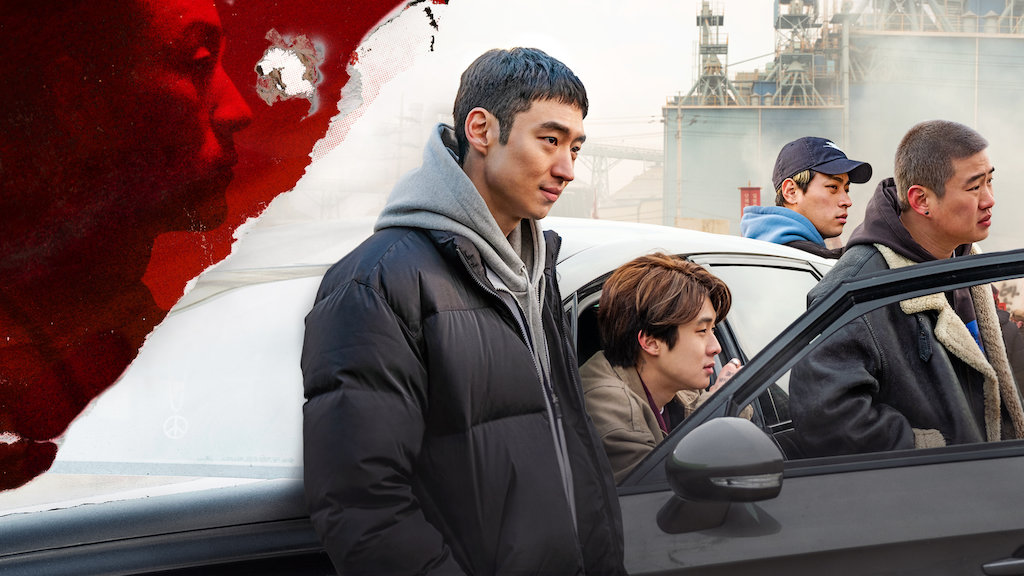When Jun-seok (Lee Je-hoon) is released from prison in a dystopian future South Korea, he and his old friends Ki-hoon (Choi Woo-shik) and Jang-ho (Ahn Jae-hong) recruit gambling house worker Sang-soo (Park Jung-min) to help them pull off a heist robbing the gambling house of its valuable US dollars, which are worth more than the South Korean won. The gang plan to use the money to escape to a new life on the beaches of Taiwan. Whilst the heist is completed successfully, the gang finds themselves pursued by Han (Park Hae-soo), a hired killer who won’t just stop at retrieving the stolen money.
Director Yoon, who also wrote the film’s script, accentuates the nightmarish aspects of the plot through his positioning of Han as a seemingly unstoppable force of nature, similar to Michael Myers or the Terminator. This can be seen in his cornering of the gang in an underground car park as well as his confrontations with them in both a hospital and the climactic shootout, with Han’s stalking down the hospital corridors in particular reminiscent of the police station sequence in James Cameron’s 1984 classic. Another notable sequence involving a phone call makes great use of the slowly mounting tension and horror of Jun-seok’s dawning realisation that outclasses many recent horror films.
Lim Won-geun‘s cinematography further adds to this nightmarish feel with its emphasis on colour washes of sickly greens and fiery oranges, making it seem like the main characters are trapped in their own personal hell. The only weak aspect of this approach is the slight over-emphasis on Han’s seemingly invincible nature, which appears to have been done for sequel purposes but instead comes across as a slightly implausible narrative choice.
However, Yoon doesn’t simply focus on emphasising stylistic elements, as his script helps to identify each of the gang members as individuals in their own right through isolated sequences that emphasise each of their distinguishing characteristics. In particular, Ki-hoon’s tender but estranged relationship with his parents not only marks him out amongst the rest of the gang, but also provides a considerable motivating factor in his initial reluctance to escape to Taiwan. The relationships between the members are also clearly established and given appropriate focus, resulting in their fates and fortunes having a greater impact due to their three-dimensional characterisation.
The performances of the gang further help to realise the depth of their characterisations, with Lee managing to capture Jun-seok’s initial arrogance at being able to pull off the heist, his loyalty towards his friends and his eventual descent into fear and panic with equal amounts of expertise. Choi, who was memorable as the son in Parasite, effectively reveals Ki-hoon’s love and concern for his parents without making this revelation about his character appear to ring false. On the other side, Park Hae-soo provides Han with a cold, implacable quality that, had the film switched focus, would make him an appealing action hero on the level of Chow Yun-fat, but instead makes him an intimidating villain to be reckoned with.
Time to Hunt is yet another example of why South Korean cinema is establishing itself as exciting and innovative, with its stylistically and narratively impressive approach to the heist genre placing it head and shoulders above Western equivalents.
